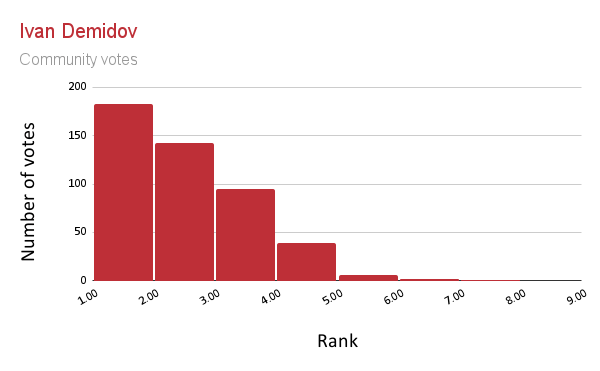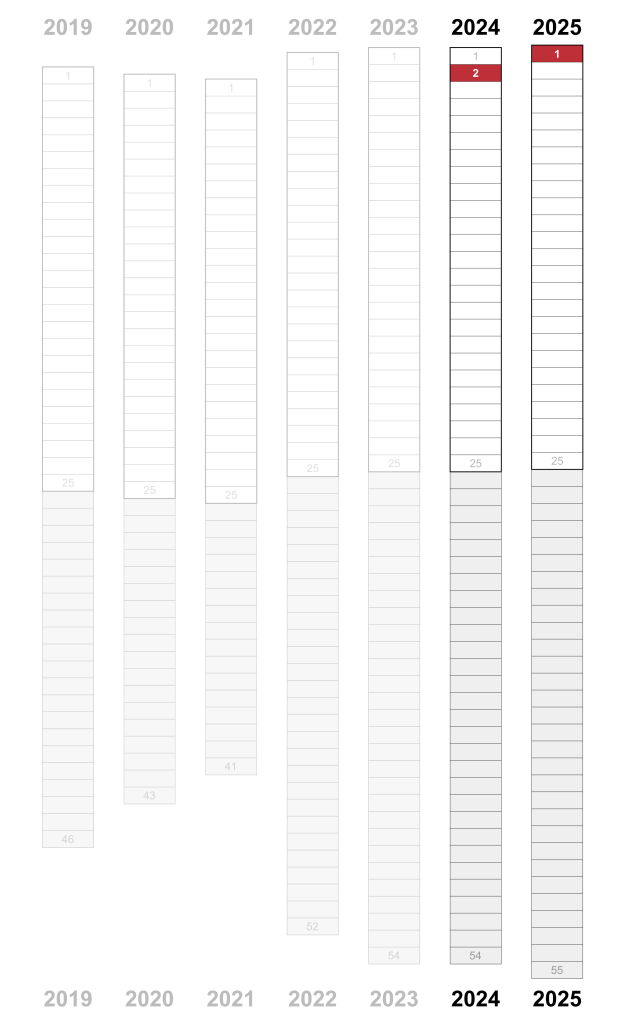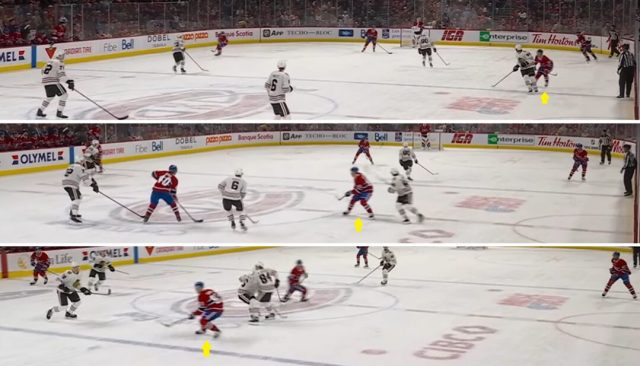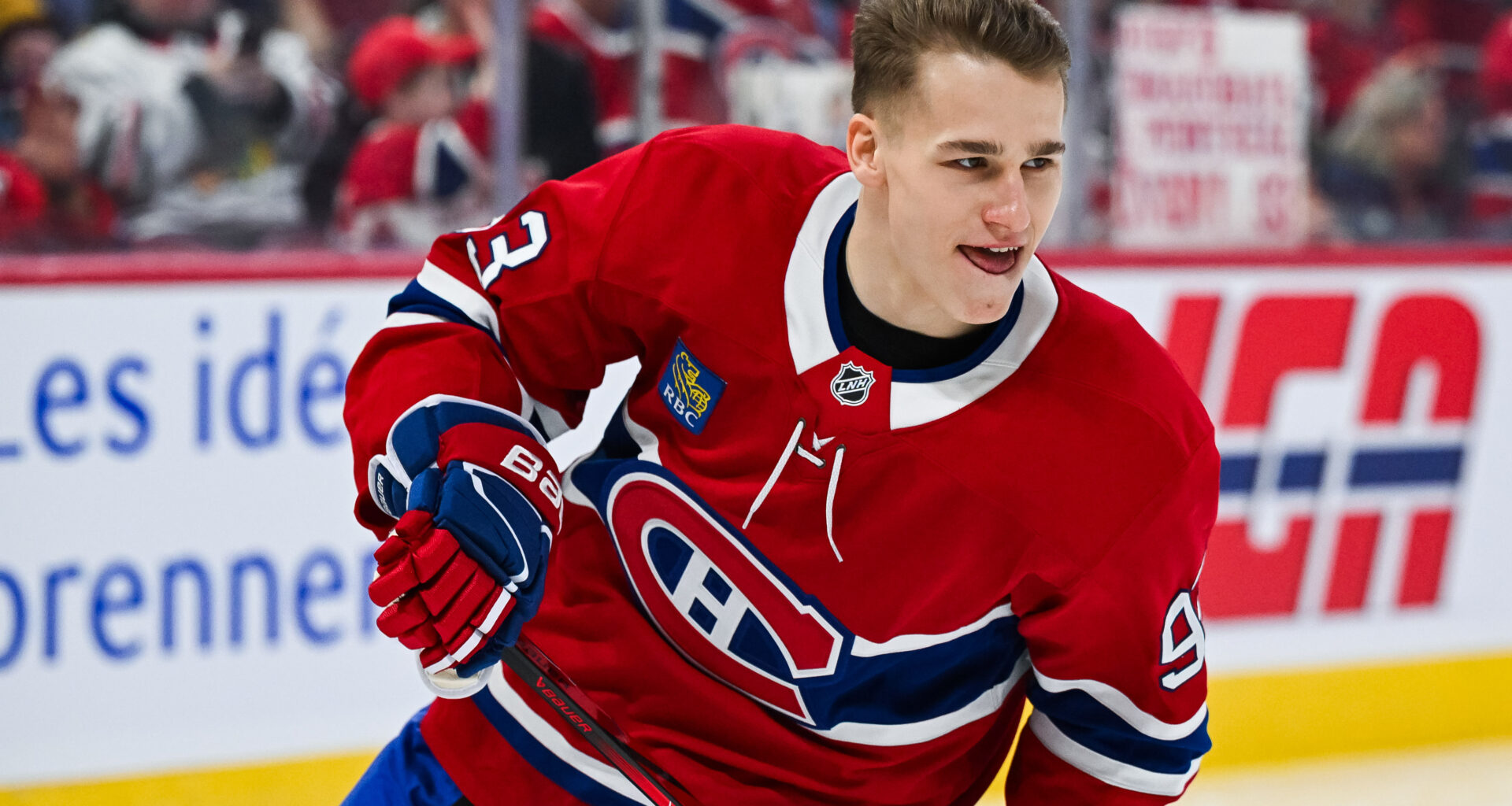Introduction
There is something about Ivan Demidov that feels unprecedented, even with the Montreal Canadiens’ century-long history. Thanks to him, Habs fans have probably learned more about the machinations of the KHL and Russian hockey than they ever imagined that they would. Roman Rotenberg became as familiar a name amongst the fandom as Michel Therrien, with some even dreaming up fanciful Mogilnyan scenarios to extract Demidov from the grasp of the Army Men. Canadiens fans placed every game, every benching, every visit by the Canadiens’ braintrust to the banks of the Neva under the microscope, the rumour mill constantly spinning in overdrive.
The passion grew with each passing day, fuelled by every point, every goal, every highlight. It crescendoed as Demidov surpassed first Matvei Michkov’s tally of 41 points, then Kirill Kaprizov’s single-season U20 record of 42. When SKA Saint Petersburg were eliminated by Dynamo Moscow in the first round of the playoffs, Canadiens fans dared to fantasize. When Demidov was surprisingly cleared to join the team, those fantasies turned into reality, and then into anticipation. The spine-tingling prospect of Demidov in the Sainte Flanelle, combined with an unexpected push by the team for the post-season, amalgamated into a swirling cauldron of emotion threatening to bubble over at any moment.
This was different from Jesperi Kotkaniemi or Juraj Slafkovský, who joined the team with blank slates at the start of fresh campaigns. This was different from Lane Hutson, where the mood leaned more toward cautious optimism. This was different from Nick Suzuki or Cole Caufield, who were complementary pieces brought in to augment an existing veteran core. This was even different than Carey Price, who still had to share the crease with Cristobal Huet through much of his rookie campaign. The build-up was tangible, palpable. People tracked Demidov’s plane. They monitored the airport — in Toronto. They packed the Bell Centre for his debut against the Chicago Blackhawks despite four-figure ticket prices. They chanted his name during warmups.
They only had to wait six minutes for release.
That the Canadiens lost that game was immaterial. The bizarre officiating blunder in the shootout was quickly forgotten. The team had Demidov, and that was all that mattered.
Voting

While the overall fan vote broke for Lane Hutson, the individual panellists leaned toward Ivan Alexeyevich by a seven-to-four count. All panel votes were either first or second, and 69% of fan votes placed Demidov in the top two positions.

First place was Demidov’s most popular placing, but a considerable number of people also ranked him second, third, and even fourth.
Top 25 Under 25 History

Demidov debuted at second last year, breaking a three-year streak for Cole Caufield at that position. He now moves up to first.
History of #1
Year
#1
2025
Ivan Demidov
2024
Juraj Slafkovský
2023
Nick Suzuki
2022
Nick Suzuki
2021
Nick Suzuki
2020
Nick Suzuki
2019
Max Domi
2018
Jonathan Drouin
2017
Alex Galchenyuk
2016
Alex Galchenyuk
2015
Alex Galchenyuk
2014
Alex Galchenyuk
2013
P.K. Subban
2012
P.K. Subban
2011
Carey Price
2010
Carey Price
Strengths
By now, Canadiens fans are well acquainted with Demidov’s skill set. The forward can stickhandle in a phone booth, pick a corner with a snipe, dangle around defenders, and find the open gaps in coverage. But what makes Demidov an elite-level talent is how he deploys and utilizes these talents in concert to create offence in varied and unpredictable ways. In turn, three things make this possible: a superb hockey sense, a profound understanding of how to control space, and a fearlessness that powers the initiative to create.
Back on draft day in 2024, Demidov said that he thought that he could “read the game two or three steps ahead.” In this goal against HC Vityaz, he played an unconventional give-and-go with Sergei Plotnikov, using the presence of teammate Zahkar Bardakov to set a pick-and-roll at the top of the crease and shed his pursuers.
On his first NHL goal, Demidov didn’t attack overtly, but quickly accelerated to speed as he exited the defensive zone. He then glided at full speed through the neutral zone, but since he wasn’t actively striding, Chicago forward Landon Slaggert was slow to notice and react. Demidov further led Slaggert into the path of Sam Rinzel, who was focused on an overlapping Joel Armia, causing the two Blackhawks to collide with each other. When Matheson sent the puck forward, Demidov was level with Chicago’s last man back, Alex Vlasic. But Vlasic was facing Matheson and Demidov was facing Hawks netminder Arvid Söderblom. The footrace was over before it even began.

Much of Demidov’s success is predicated on his ability to put his opposition on the back foot. He does this through feints and dekes, but he also does this by temptation. In this highlight reel end-to-end rush against CSKA, Demidov used the puck to gradually pull Nikita Nesterov’s stick wider and further away from his body until the Red Army defenceman was in no position to act against a cut to the inside. Demidov then again used teammate Bardakov’s positioning to evade the second CSKA defender, then made a sharp cut to not only move onto his forehand, but to use his back leg to shield against the poke check from low forward Pavel Karnaukhov. Through this sequence, after leaving Nesterov behind, no CSKA player was able to bring their stick within a foot of the puck or Demidov’s stick.

Weaknesses
While several pundits have commented on Demidov’s skating, most of the criticism focuses on his unusual stride mechanics rather than concrete circumstances where poor skating has negatively impacted his game. Rather, Demidov’s most obvious weakness right now is his defence. Where he is bold and daring when he or his teammates have the puck, he is more tentative and reactive when possession lies with the opposition.
For example, in Game 3 of the series against the Washington Capitals, Demidov marked Ryan Leonard, the closest man to him, but this placed all five Habs on the same side of the ice, letting Jakub Chychrun walk in and tie the game. This isn’t to heap blame exclusively on Demidov; Arber Xhekaj should have come high to take Leonard or covered Lars Eller in front of the net, thereby freeing up David Savard to pay attention to Chychrun. However, it does illustrate that Demidov, at the moment, takes the simple option on defence, whereas he’s more capable of making complex reads on offence.

However, it is also very difficult to properly assess Demidov’s defensive capabilities from a macro standpoint. After all, he arrived in Montreal and was dropped into a completely unfamiliar system that took three months of tinkering earlier in the year just to reach something resembling adequacy. With the Army Men, Demidov played for the 19th-ranked defence (out of 23) in the KHL, marshalled by a coach and general manager who unceremoniously jettisoned goaltender Nikita Serebryakov (2.27 goals-against average, .931 save percentage) to Avangard Omsk in order to play Yegor Zavragin (2.55 GAA, .912 Sv%) and Artemy Pleshkov (2.86 GAA, .916 Sv%). He also played with a shiny sword of Damocles above his head, riding the pine more often than not should he make a defensive error. So while his individual mistakes do show up in the film, his ability to understand defensive systems and structures, as well as his capacity for improvement in these areas, remains untested, and therefore undetermined.
Projection
The main questions for Demidov heading into his first full season with the Tricolore are how his handling of time and space will adjust to the NHL’s faster tempo and elevated levels of aggression, and what linemates the Canadiens can find for their latest wunderkind. The similarities to Lane Hutson’s situation heading into 2024-25 should be obvious, and both Demidov and the Canadiens will hopefully be able to draw from the lessons learned during Hutson’s introduction to the NHL.
Ivan Demidov has the ability to be Montreal’s best offensive forward since Guy Lafleur. A strange thing, perhaps, to say about a player who has two regular-season games under his belt, yet not an unreasonable one. Demidov has the temperament, the confidence, and the desire to handle the pressures and expectations of the Montreal market. Perhaps more importantly, he will not be bearing all of the expectations for the next generation alone. Unlike the days of Jonathan Drouin or Alex Galchenyuk, Demidov is currently flanked by three other players under the age of 25 with elite ceilings who will battle him for the top spot moving forward, and who will share the burden should the team stumble during the process.
Patrik Bexell is joined by longtime Habs reporter Marc-Antoine Godin to discuss Demidov.

